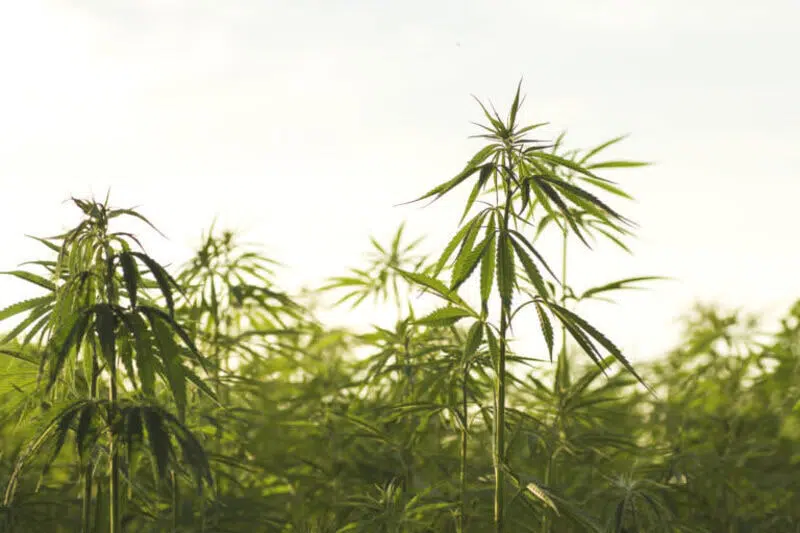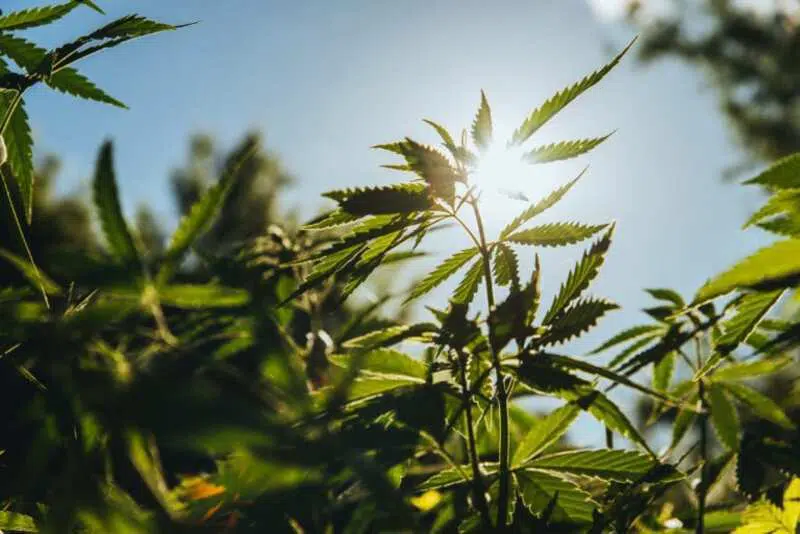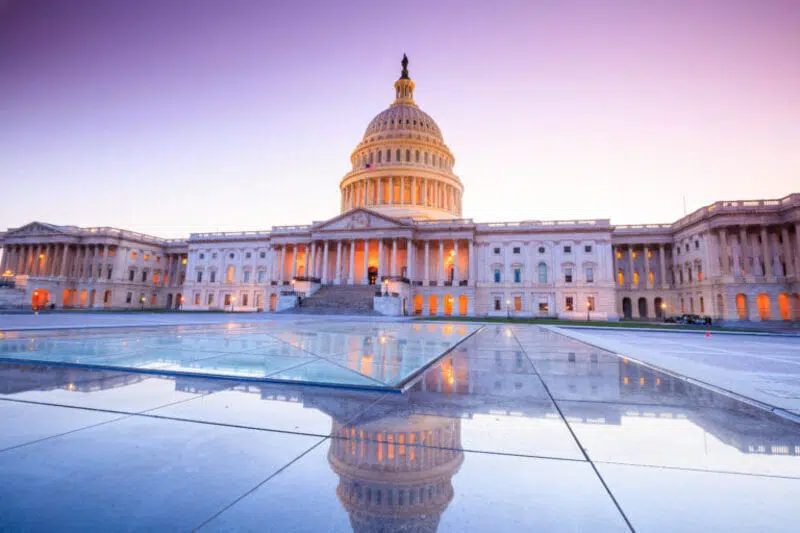-
- Market Research
- |
- CBD Near Me
- |
- Giveaways
- |
- Newsletter
- |
- Contact
- |
- Advertise
- |

Table of Contents
Here are the biggest CBD news stories from this week:
- Dillard’s is selling a line of CBD products from CBD for Life
- The US Hemp Roundtable submits a 29-page report on the safety of CBD to the FDA
- US Senate schedules a hearing on hemp and the 2018 Farm Bill for next week
- Governor of Colorado and a USDA official are scheduled to speak at a CBD and hemp conference
- Ohio legislature passes bill to legalize CBD and hemp
Table of Contents
- Dillard’s Selling Line of CBD Products
- US Hemp Roundtable Submits CBD Safety Data to the FDA
- US Senate Schedules Hearing on Hemp and 2018 Farm Bill
- Gov of Colorado and USDA Official to Speak at CBD and Hemp Conference
- Ohio Lawmakers Pass Bill to Legalize CBD and Hemp, Awaits Gov’s Signature
Dillard’s Selling Line of CBD Products
Dillard’s is now selling CBD products both in its stores and online.
The department store has partnered with CBD for Life, a CBD brand based in New Jersey and owned by iAnthus Capital Holdings, Inc., to sell products in 265 of its stores in 29 states.
All of the products Dillard’s will sell are CBD topicals, including serums, cleansers, rubs, roll-ons, massage lotion, and bath bombs.
“We’re excited for our products to be featured on the shelves of one of the largest and most well-regarded fashion retailers in the United States,” said Beth Stavola, Co-Founder of CBD For Life in a press release. “The ability to reach an even broader audience via the well-established customer base of a great partner like Dillard’s brings us another step closer to achieving our end goal of establishing CBD For Life as a household name in beauty and wellness.”
Dillard’s joins a growing list of retailers who have decided to carry CBD products, including Walgreens, CVS, Kroger, and several others.
Larger stores like Target and Walmart have stated that they do not currently have plans to carry CBD products.
US Hemp Roundtable Submits CBD Safety Data to the FDA
On Tuesday, the US Hemp Roundtable sent a 29-page report with safety data on CBD to the US Food and Drug Administration (FDA).
The Roundtable submitted its report on the deadline of the FDA’s public comment period on CBD, a channel for the public to provide data and information about the compound.
The information provided in the report includes scientific research and reports from the Hemp Industries Association along with companies and organizations that are members of the Roundtable.
Some of the most noteworthy information is about “adverse events.”
“One of our member companies sold approximately 580,000 products with zero serious adverse events reported to the company, and about 300 non-serious adverse reported for humans and animals,” states the report. “Another member company has sold over 1.4 million products, with zero serious adverse events and 623 non-serious adverse events.”
In light of all the available evidence, the Roundtable concluded the following:
“We believe that there are no unique safety concerns associated with the consumption of CBD that would preclude the use of FDA’s current regulatory framework in establishing product-specific acceptable levels of use.”
US Hemp Roundtable Recommendations
The Roundtable also offered the following recommendations to the FDA:
- CBD does not appear to pose unreasonable safety risks to consumers and therefore can be regulated by FDA like any other botanical ingredient used in these products. This position is supported by clinical studies conducted at dosages at or above what is commonly used in dietary supplements, food, and cosmetics. Several of these studies are in sensitive populations.
- Appropriate levels of CBD will be much lower in food and dietary ingredients than those used in pharmaceutical products. However, we advise against establishing arbitrary dose limits for these products as the effects of the CBD will vary greatly based on the intended use, formulation, and mode of delivery. Each manufacturer has the burden to establish its specific product formulation is safe for the intended population through FDA’s current regulatory framework.
- Safety concerns that may arise from the lack of data in vulnerable populations such as children, pregnant or lactating women, and patients taking therapeutic levels of CBD can be addressed in the labeling of the product with adequate advisory language and directions for use.
- FDA’s current regulatory system supports incentives for drug development, and clearly and sufficiently distinguishes these products from food and dietary ingredients based on their intended use and labeling.
- The Roundtable urges FDA to use its existing authority under the FD&C Act to enforce the mandatory cGMPs to protect consumers from unsafe products and ensure that all hemp-derived products are produced in a quality, consistent manner and accurately labeled.
- We also encourage FDA to consider adopting the standards provided in the U.S. Hemp Authority Guidance and work with standard-setting organizations such as ASTM, ANSI, AOAC, and USP to develop validated analytical testing and consensus-based standards for quality and safety. In future guidance or rulemaking, we also recommend that FDA to include consensus-based, validated standards and methods for cannabinoid content, specifically CBD and THC.
- If FDA determines that standardized definitions are necessary, we encourage FDA to work with industry stakeholders to develop these definitions.
- FDA should continue to actively enforce the adulteration and misbranding provisions of the FD&C Act to ensure consumers are informed of any risks associated with the use of hemp products.
- Existing federal laws and regulations provide the most appropriate mechanism to inform consumers in a uniform, consistent manner of the potential risks of products that contain hemp-derived ingredients, thereby obviating the need for state restrictions.
- FDA, rather than states, is best suited to determine whether the current labeling of dietary supplements and food containing hemp-derived ingredients should include additional language to inform consumers, in particular vulnerable sub-populations.
- Should FDA determine that advisory language is necessary for products containing CBD or other hemp-derived ingredients, we recommend that FDA consider utilizing the advisory language provided in the U.S. Hemp Authority Guidance.
The FDA recently announced that it would offer another update on its progress with CBD regulations by the end of summer or in early fall.
US Senate Schedules Hearing on Hemp and 2018 Farm Bill
The US Senate has scheduled a hearing entitled “Hemp Production and the 2018 Farm Bill” for next week.
The Senate Agriculture Committee will have witnesses from the USDA, the FDA, and the EPA on July 25, which suggests the discussion will center around hemp production regulations.
- The Honorable Greg Ibach, Under Secretary for Marketing and Regulatory Programs, US Department of Agriculture
- The Honorable Stephen Alexander Vaden, General Counsel, US Department of Agriculture
- The Honorable Alexandra Dapolito Dunn, Assistant Administrator, Office of Chemical Safety and Pollution Prevention, US Environmental Protection Agency
- Dr. Amy P. Abernethy, Principal Deputy Commissioner of Food and Drugs, Office of the Commissioner, US Food & Drug Administration
- Mr. Brian Furnish, Farmer, Cynthiana, Ky
- Mrs. Erica Stark, Executive Director, National Hemp Association
- Mr. Darrell G. Seki, Sr., Tribal Chairman, Red Lake Band of Chippewa Indians
Both the FDA and USDA are currently working on regulations for CBD and hemp, respectively.
The USDA has stated that it plans to release its interim final rule on hemp in August, in time for the 2020 growing season.
Dr. Abernethy of the FDA has stated that the agency is “expediting” its regulatory process on CBD.
Gov of Colorado and USDA Official to Speak at CBD and Hemp Conference
Governor of Colorado Jared Polis and USDA official William Richmond are planning to speak at the American Herbal Products Association’s (AHPA) first-ever CBD and hemp conference next month.
Gov. Polis, a former Congressman, is a long-time hemp supporter.
Mr. Richmond, a senior marketing specialist for the USDA Agricultural Marketing Service, is scheduled to give an update on the status of the USDA’s hemp regulations.
According to the AHPA’s announcement of the event, the FDA has committed to giving an update on its regulatory framework for CBD as well.
The purpose of the two-day conference is “to provide critical information for companies navigating the rapidly evolving legal, regulatory and financial landscapes to manufacture and market dietary supplement products with hemp or hemp-derived ingredients including cannabidiol (CBD).”
These are the topics to be discussed:
- Getting to Market: Hemp Supply Chain Management
- Overcoming Regulatory Obstacles: Challenges with FDA, USDA and Individual States
- A Primer on FDA Regulation of Hemp-CBD Supplements
- The Hemp-CBD Supplement Market: A Financial Snapshot
- Hemp-CBD Supplements from the Retailers’ Perspective
- Compliance with FDA’s cGMP Requirements for Dietary Supplements — presented by EAS Consulting Group
- NDI Notification and GRAS for Hemp-CBD Ingredient Workshop — presented by AIBMR
The event will be held in Denver at Crowne Plaza on August 15-16.
Ohio Lawmakers Pass Bill to Legalize CBD and Hemp, Awaits Gov’s Signature
After a report last week that legislation to legalize CBD products and hemp had stalled in the Ohio House, the bill has passed and sits on Gov. Mike DeWine’s desk.
The bill will allow farmers to grow hemp once the Ohio Department of Agriculture draws up rules and regulations, and it also permits the sale of CBD products.
Senate Bill 57 unanimously passed in the Ohio Senate in late March.
It was not until June that the measure was voted on in a House committee and passed to the House floor.
Last week, the Speaker of the House Larry Householder (R-Glenford) said the bill had stalled and would not be discussed again until the fall at the earliest.
However, SB57 passed the House on Wednesday by a vote of 89-3, sending the bill back to the Senate because of new amendments made to it.
The Senate unanimously concurred the same day, sending the bill to Gov. DeWine.
Ohio is one of only four states left that have yet to legalize and implement a hemp production program.
Both farmers and universities stand to benefit directly from the bill.
“Farmers are getting hit pretty hard right now with the weather and things — the tariffs and the weather,” said Householder. “I think that it now can help them a little bit. It certainly can help universities like Ohio State University, as they continue to study hemp and try to perfect seeds and such.”
Gov. DeWine is expected to sign the bill, and if he does, it will go into effect immediately.







